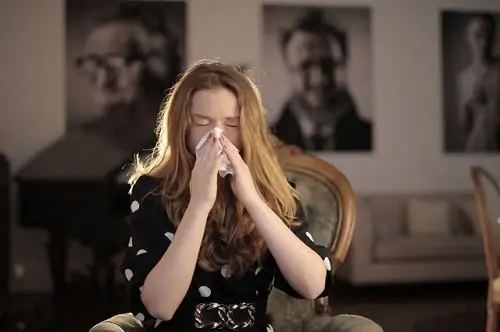
Pollen counts are high, eyes are itchy, noses are drippy, and sinuses everywhere are stuffy. It’s allergy season, and even though allergies don’t directly cause cavities, allergies can still be concerning for your dentist in Chapel Hill. In fact, the way our bodies react to allergens can put us at increased risk for decay and other dental problems.
Stuffy Noses = Mouth Breathing
Thanks to an overproduction of mucus, one of the most common side effects of allergies is a stuffed-up nose, which can make it difficult to breathe. As a natural response, we will automatically shift to breathing out of our mouths rather than our noses. Now, while our bodies will thank us for the oxygen, our teeth, and your dentist in Chapel Hill, may have something else to say.
Mouth Breathing Leads to Cavities
Remember when we said that allergies themselves don’t cause cavities but the symptoms of allergies can? Mouth breathing is one of those symptoms. You see, when we breathe out of our mouths instead of our noses, our mouths dry out faster than normal. Dry mouth is caused by a lack of saliva, and a healthy mouth needs saliva to stay healthy. Without it, bad bacteria can linger around and cause bad breath, wear away at protective tooth enamel and cause cavities, and can even result in gum disease. Additionally, mouth breathing as a child can cause a gummy smile or even problems with facial development.
Tooth Pain
We already know that allergies can cause an overproduction of mucus, but this excessive amount of mucus can put pressure on the sinuses. The maxillary sinuses in particular can cause some unwanted and unexpected molar pain. How? Well, the roots and nerves of the back teeth are so close to the maxillary sinuses that sinus inflammation can put pressure on the nerves and cause discomfort.
Allergy Medicine Can Help… And Hurt
Most allergy sufferers will take allergy medication to alleviate the uncomfortable side effects of a flare-up. While these medications can relieve some of the stuffiness, itchiness, and drippiness, they too can sometimes cause dry mouth. But lucky for you, your dentist in Chapel Hill knows a few tricks that can reduce the likelihood of experiencing negative side effects of dry mouth, such as:
Never stop any medication recommended by your doctor without first talking about it.
If you’re concerned that your allergies or allergy medication is causing dry mouth and putting your oral health at risk, or you’re experiencing unexplainable molar pain, we welcome you to call us to schedule an appointment.